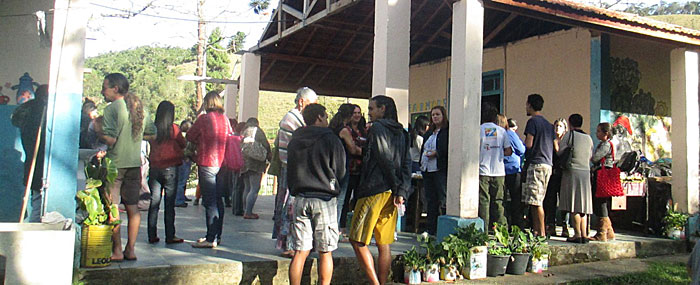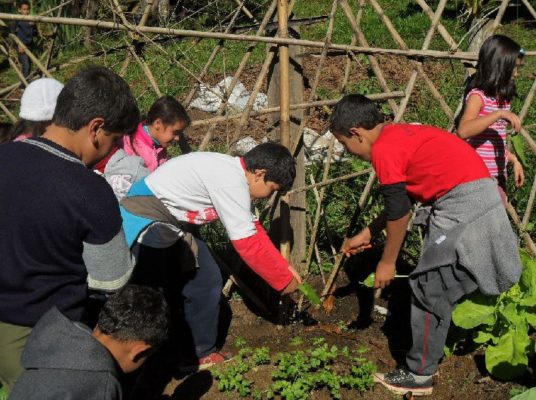When School Becomes Everyone’s Business

Mirantão, a remote village in the southwest of Brazil with a population of about 1,000 people, affords few opportunities for making a living. Many of the villagers consider leaving in search of better prospects. Among them are Mauricio, who has left for a better life in the city, and Marcia, who is raising her grandson and who remembers her time at school as only a series of punishments. Children in the village lack good quality, formal education. Their families’ knowledge is not appreciated by the education system. But the school and the community are in the process of changing.
Two members of the ATD Fourth World Volunteer Corps have lived in the village since 2012. As a couple raising two children, they participate in the life of the community and the school. Working with the local community to initiate dialogues among the administration, teachers, parents, and students, they aim to develop together a collaborative school that embraces traditional knowledge.
The volunteers describe the thinking behind the project:
“We often hear people say that they hope to send their children to school so that they will be better off than their parents are. They also feel that the knowledge they, themselves, have acquired outside school is not recognized or considered useful. But a community’s survival lies in recognizing the value of its culture and traditions, and in creating opportunities for people who haven’t had a formal education but who have life experience they can share so they can be proud of who they are.
“Ultimately, the parents hope that the school will offer a chance for all children to be free to decide their own future, whether that lies in university lecture halls or in the fields. For that, it is important to bridge the gap between the school and the parents. The school and the community must work together to make sure the children can make the most of their time in school.”
This is why teachers from the district that serves this village decided to start a “school without walls,” going to teach in the village. At first, they visited once a month; then the visits increased to once a week. This project was conceived during a meeting with parents who spoke about wanting to be involved. Now every Friday is dedicated to “life learning.” It is through this project that Marcia shares her talent for gardening. She spent a month helping to create a vegetable garden in the school grounds and teaching the children how to grow vegetables.
José Pacheco, a renowned Portuguese educator who lives in Brazil, developed an interesting analysis on the school and the community. Invited by ATD’s volunteers, he came to Mirantão and spoke with teachers, parents, and children to encourage them to think together about the educational importance of their village school project.
Once a project like this is embedded within the local community, new initiatives emerge. Mauricio, who had left the village to study and work for a better life, decided to come back and to pass on to the children his love of the village and especially of music. Now, thanks to him, the children are learning to play instruments, and they play music together. It was Mauricio’s father who taught him to play music and now Mauricio is passing on that knowledge to future generations.
Because of this initiative that has involved the entire community in a new approach to education, the children, young people, and adults in Mirantão have a new future opening up for them.


